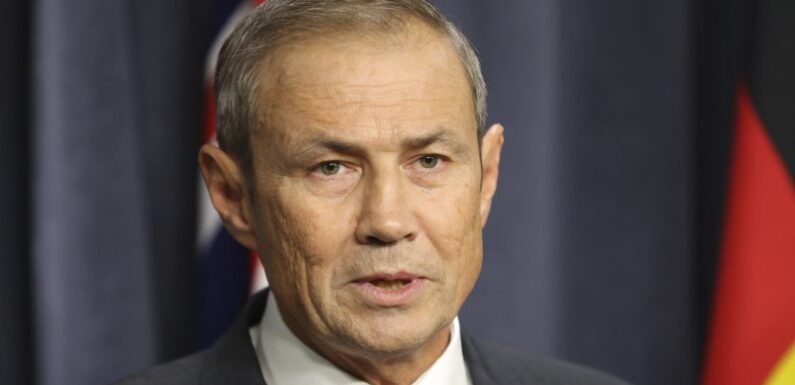
Save articles for later
Add articles to your saved list and come back to them any time.
It’s hard to think of a bigger lawmaking failure in recent political history than the WA government’s impending backflip on its Aboriginal Cultural Heritage Act.
After six years, thousands of people consulted and substantial taxpayer resources expended on the process, the government has created little more than 279 pages of fire starter to get them through this cold winter. The new laws, which came into effect in July, are set to be scrapped.
WA Premier Roger Cook.Credit: Trevor Collens
It is an embarrassing backflip that will shake the Cook government to its core but to fittingly borrow an analogy from the aggrieved agricultural sector – they are reaping what they sowed.
Despite the strident defence of the laws until a fortnight ago, which included labelling the opposition racist in parliament, WAtoday understands privately the government had been worried about growing public resentment of the laws being led by farming groups and amplified by media coverage.
Once the dust settled on the Rockingham by-election last week the government began reaching out to mining industry stakeholders to hint the act would be scrapped.
WA Premier Roger Cook and Aboriginal Affairs Minister Tony Buti are expected to announce that the laws will revert to the old act sometime after Monday’s cabinet meeting while flagging some changes that may give Aboriginal groups more decision-making power.
It is a monumental about-face given the time and effort poured into the new laws.
Throughout the saga, the government has managed to anger every single stakeholder at one point or another.
It would be an impressive achievement if it weren’t so devastating for Aboriginal groups hopeful that their sacred sites would have better protection than provided by the existing 50-year-old laws.
For a bit of history, the McGowan government committed to review the state’s existing Aboriginal cultural heritage legislation (which dates back to 1972) in 2017 and former Aboriginal Affairs Minister Ben Wyatt kicked off the process by releasing a consultation paper in 2018.
In 2019 he released a discussion paper and eventually the government released a draft consultation bill.
COVID-19 delayed things a bit but over that period there were about 150 stakeholder meetings, public information sessions and workshops attended by more than 1500 people and more than 380 submissions.
It took four years to get to the point where the bill was finally introduced to parliament in November 2021 – a year and a half after the destruction of Juukan Gorge – but as soon as it entered the lower house the government suddenly began talking about the need for urgency.
It used its overwhelming parliamentary majority to ram the laws through despite significant objections from opposition members.
Had there been a robust parliamentary debate the practical issues that eventually emerged may have been ironed out before the laws came into effect on July 1.
Better yet, sending the bill to a committee would have enabled a forensic deep dive. Good legislation needs to be able to stand up to such scrutiny.
The laws were unworkable, onerous, and confusing. The mechanisms required for the smooth operation of the laws like the local Aboriginal groups charged with assessing applications were not in place on July 1.
The government thought it knew best and rode roughshod over the parliamentary process.
It was a dog’s breakfast but the intent of the law remains as important as it was back in 2017.
Farming and mining groups are happy with the decision to scrap the laws, but every stakeholder has to pay the price for the Cook government’s hubris.
Get the day’s breaking news, entertainment ideas and a long read to enjoy. Sign up to receive our Evening Edition newsletter here.
Most Viewed in Politics
From our partners
Source: Read Full Article
